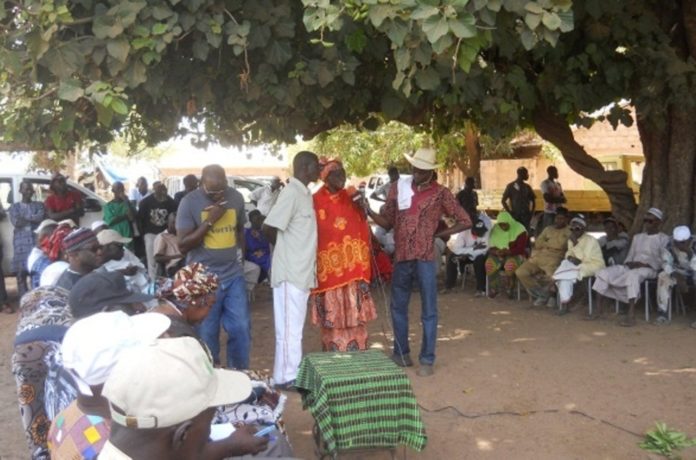This column is devoted to monitor and report on issues that relate to production, processing, preservation and marketing of agricultural produce, aimed at ensuring food security in the Gambia as well as the interventions of Government and Non-governmental Organizations in this regard.
Agriculture remains both a new and old source of national revenue and (youth) employment. Improved public awareness and discussion of the issues involved, will significantly maximize agricultural outcomes and the contribution of the sector to economic growth and job creation.
Agriculture is the mainstay of The Gambian economy, contributing between 25 to 30 percent of the country’s GDP, and employing over 70 percent of her labour force. Agriculture accounts for about 30 percent of the country’s foreign exchange earnings which comes mainly from the export of the major cash crop, groundnut.
Gambia’s agriculture sector is characterised by subsistence rain-fed production of food crops comprising cereals mainly coarse grains and rice, the semi-commercial production of groundnuts and sesame, traditional livestock production, fishing and horticulture. Despite being the main livelihood for the majority of Gambians, agriculture continues to be marred by low input farming systems, with the majority of farmers not getting access to improved seeds and fertilizer among others.
Farmers’ Eye has started its monthly tour of the country to seek the opinions of farmers in the communities, regarding their constraints and the way forward in ensuring food security in the Gambia.
Farmers in Jimara District in the Upper River Region lamented that their main constraints in are seeds, fertilizer and farm implements.
The farmers in Jimara made these lamentations before the Minister of Agriculture Amie Fabureh, during a meeting with Farmers at Mankamang Kunda, which was part of her familiarization tour. They told the Minister that the cause of the decline in production in their District is lack of seeds, farm implements and the untimely but expensive cost of fertilizer. Aji Jarra Jigana who spoke on behalf of women farmers of the District, informed the Minister that as women farmers in the district, they are engaged in groundnut, rice and horticulture production including poultry and animal husbandry. She said the constraints fronting them in their farming activities are seeds, fertilizer, farm implements and poultry feed. This, she said, hinders their development as women, in these ventures.
According to Aji Jigana, the Ministry of Agriculture should help them to have access to seeds, fertilizer and farm implements on time, if they want to ensure a bumper harvest and income enhancement for farmers.
According to her, one will find a man and ten women with a single farm implement in most households in Jimara district; that owners of farm implements always sow their fields first before they can get access to them; that this leads to late sowing of their crops which impacts negatively on production. She said last year, Bakadagy village received rice seed from the Ministry; but due to the lack of farm implements like tractors, ploughing could not be done on time.
The Chief of the District Kanimang Sanneh, said the major constraints of farmers in his district are many; but key among them is the lack of farm implements and inputs such as good seed and fertilizer.
He appealed to the Ministry of Agriculture to come up with a cooperative society for farmers; adding in the past, farmers used to be provided with farm inputs and implements and this eased the burden on them. He added apart from farm inputs and implements, the cooperative society helps farmers during the hunger period with food aid and cash loans. Chief Sanneh informed the Minister that these actions were really helpful to farmers but was stopped by the former regime. He called on the Minister to do all they can to bring back the farmers’ cooperative movement that will be owned and controlled by farmers.
Responding to farmers concerns, new Agric. Minister Fabureh asserted that she was less than a month’s old in office; adding she was on tour to meet farmers in their communities and to hear from them. She said wherever she goes, the issue of farm inputs and implements were raised.
According to her, the first priority for the Ministry when she assumed office was farm inputs; adding she will do everything possible to make sure that fertilizer is available to farmers before the rains.
She said her second priority is farm implements. Minister Fabureh said due to the duration before the commencement of the rainy season, the issue of farm implements may not be addressed until next year.
She concludes that her permanent secretary is already working on the issue.


















